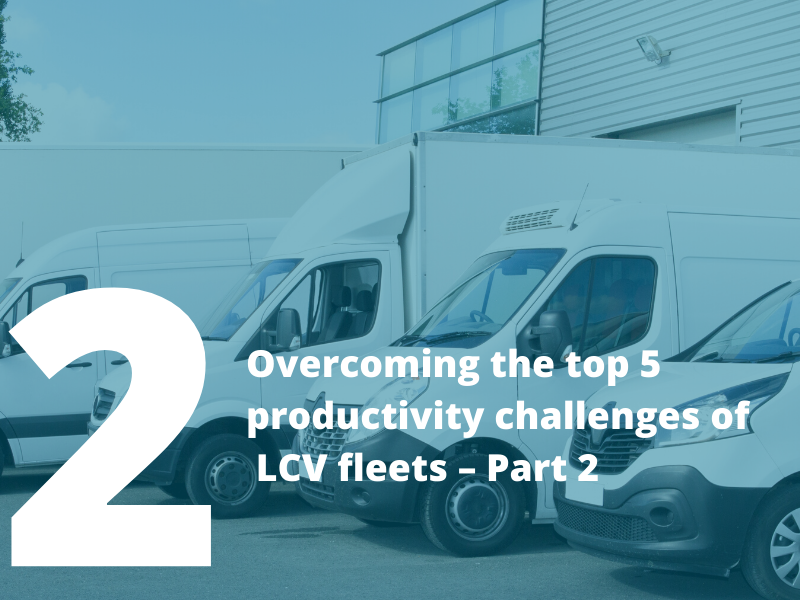5th March 2020
Overcoming the top 5 productivity challenges of LCV fleets – Part 2

Following on from last week’s article, below we discuss Productivity Challenge number two and provide suitable solutions to help LCV fleets improve efficiency and reduce costs.
Challenge 2
Fuel
Fuel is a major cost for any company that runs a fleet.
Diesel has lost its preferred status and is going up in price, while going down in popularity. Yet it remains the favoured fuel for the transport industry, including the LCV sector. As a result, many company fleets’ fuel costs are now accounting for as much as 60% of the fleet’s operating budget.
As an important component of a fleet manager’s responsibilities, it is vital to find ways to save on fuel costs and consumption in order to drive down fleet operating costs.

Solutions:
Promote ecodriving
Driving more efficiently by using a driving method called ‘Ecodriving’, drivers are able to not only save on fuel but also reduce carbon emissions and improve air quality.
This driving style can help reduce fuel consumption, extend an electric vehicle (EV)’s range, cut carbon emissions and lower accident rates in any vehicle, whether it is conventional, electric or a hybrid.
Read our ecodriving factsheet for more tips to help your drivers reduce fuel consumption whilst lowering carbon emissions and ultimately reduce your fleet costs.
Reduce idle time
The typical fleet vehicle can burn up to five litres of fuel every day by idling between three to four hours during a day’s work. With rising diesel prices, idling can quickly become a very large expense.
Reducing the idling time of vehicles saves fuel while also reducing engine wear and associated maintenance costs, which will also help save costs in the future.
Start a programme to reduce fuel cost
A fuel cost reduction programme is a good way to monitor and reduce fuel usage – but only if implemented properly.
A written policy will define the expectations for drivers around fuel and set the parameters around acceptable fuel practices. Communicate the policy to both your old and new drivers on a regular basis and also consider adding the policy and fuel reduction tips to your routine driver training.
Alternative Fuels
Another option is to look into alternative fuels. Electric vans are perfect for businesses as they are cheap to run, reliable and designed with the needs of fleet managers in mind.
Several manufacturers trusted by businesses in the UK have invested significantly in electric vehicle technology and offer a range of electric vans that cover a wide variety of business needs. With outstanding range and zero emissions, many of these electric vans make perfect business vehicles as well as perfect business sense.
Stay tuned for next week’s article where we will be discussing Productivity Challenge number 3